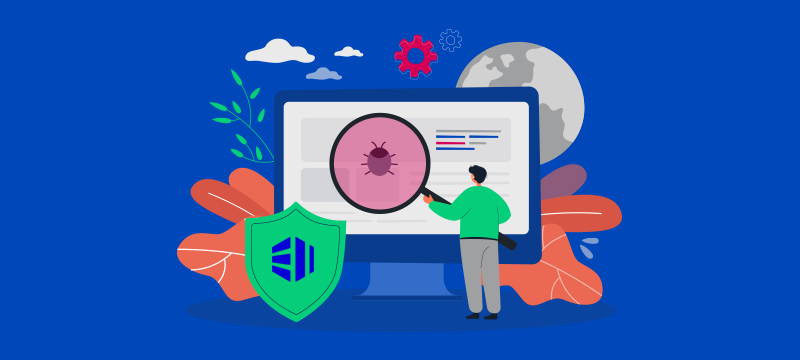If you have a website, the chances are that you’ll do most of your work on it using your computer. This means that if your PC has a virus infection, there’s a real risk that any files you upload to your website could be infected too – and that could lead to your website failing, being taken offline by your web host or causing your users’ devices to get infected too. So, to ensure this doesn’t happen, here are 10 smart ways to protect your computer against viruses.
- Use an anti-virus program
The most important thing you can do to keep your computer free from viruses, ransomware and other types of malware is to install an anti-virus program, like Norton, McAfee, Sophos or Kaspersky. Most of them are paid-for solutions, but there are some free alternatives around, like Avast and AVG. These highly sophisticated tools will keep your PC protected from a huge range of threats around the clock. It is important that they always run in the background. - Turn on your PC’s firewall
Both Windows and Mac OS come with built-in firewalls. These clever tools help protect your computer and the data and files stored on it by managing the network traffic. They do this by blocking unwanted and unsolicited traffic that is sent over the network to your PC, including hackers and malware attacks. Make sure you have your firewall turned on. - Keep programs updated
Your PC will have lots of different programs running on it, including the operating system and all the software you have installed. These can contain vulnerabilities that enable cybercriminals to hack into your computer or infect it. The simple way to stop this from happening is to install updates as soon as they are available, this way, any vulnerabilities in the older version will be removed. - Turn on secure browsing
Secure browsing tools often come free with anti-virus programs. Their job is to prevent you from visiting websites that might harm your computer. Some websites are purposely built so that the moment your browser opens them, your computer gets infected. Secure browsing will block access to these sites, preventing your browser from having access to them and displaying a warning page instead. - Block popups
Popups are another way that cybercriminals try to infect your computer. Sometimes you can be infected as soon as the popup displays, some need to be clicked on first and others are designed to steal login and other personal information. Of course, not all popups are malicious and lots of websites use them legitimately to display ads and offers, however, it’s not always easy to spot the dangerous ones. Many browsers come with popup blockers, or you can install them as an add-on. - Don’t download software from unsafe sites
If you are after a bargain on a piece of software, be very careful where you get it from. Some cybercriminals infect software so that when you download and install it, it infects your computer. They often obtain copies of legitimate popular software, edit the programming with malware and then advertise it online, either for free or at bargain prices in order to attract more downloads. To avoid this, stay away from software sources that you are unfamiliar with. If possible, always buy from the developer or a trusted retailer. - Virus-check external drives
If you plug any external storage device into your PC, whether a mobile phone or external hard drive, there’s always a risk that if it has an infection, it could spread to your PC or steal data from it. To prevent this, once you plug it in, always get your antivirus program to scan the device before opening or transferring any files. If it is infected, the anti-virus program will find it. - Scan files before uploading to your website
Anti-virus programs can also check individual files and folders for malware. If you are about to upload something to your website, you can make sure it is free from infection by scanning it first. You can do this by opening your file explorer, right-clicking on the file and then clicking scan. - Disable remote access
Remote access is a useful tool as it can enable computer experts to fix your PC over the internet. However, it’s very rare, if ever, that you will need this service. Unfortunately, hackers exploit remote access to break into PCs remotely. Once in, they can infect it with malware, steal your data and spy on you. Disabling remote access prevents them from using this method of attack. - Backup your PC
If the worst should happen and your PC does get infected with malware, getting rid of it could be a difficult and expensive task. It could also mean that you lose all your programs and files. The easy way to restore your computer to the way it was and not lose your data is to take regular backups. Today, you can do this for free with tools like Microsoft 356 or your antivirus solution, though the amount of free space you are offered might not be enough for your entire hard drive.
Conclusion
Protecting your PC from infection can also prevent you from accidentally infecting your website. Hopefully, the 10 steps above will boost your security and keep out the cybercriminals.
If you are looking for secure hosting for your website, with built-in virus protection, visit our cPanel Hosting page.


